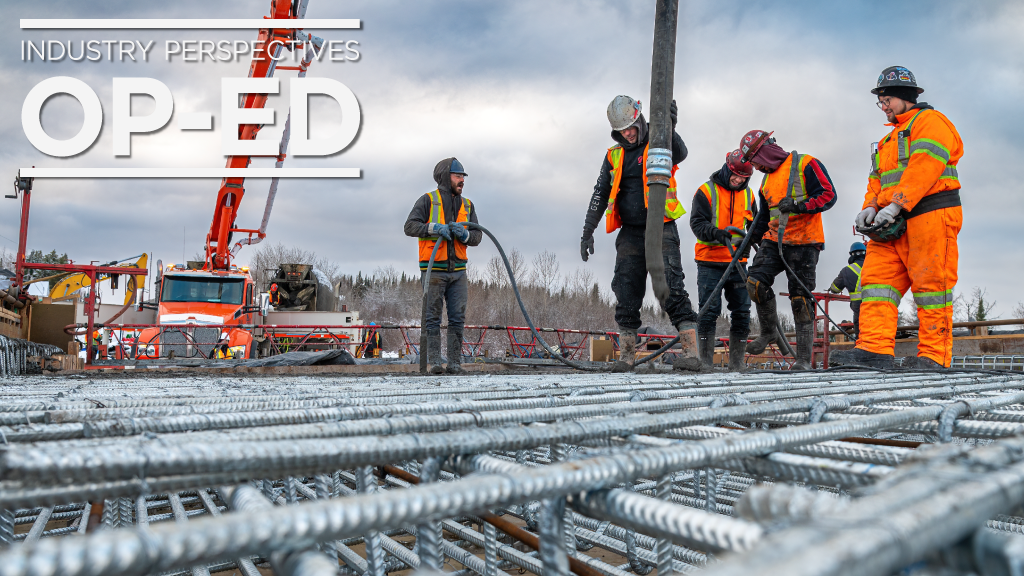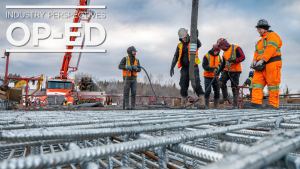It sounds so simple.
Canada’s construction industry could build more for less. Building critical infrastructure more efficiently would boost productivity and save public tax dollars.
So why are governments holding us back?
It’s not like we didn’t see this coming. For decades, Canada’s labour productivity has been abysmally low compared to other countries.
But now, the Bank of Canada governor and leading economists describe the slump as a national emergency. While there’s no shortage of advice on how to turn things around, we know that any rescue plan should include better policy choices aimed at delivering more critical infrastructure, improving worker skills and driving the kind of innovation and efficiency needed to fuel our economy.
That’s not happening in B.C. or the City of Toronto where restrictive tendering laws are undermining the construction industry’s ability to improve productivity and grow the economy.
Both governments have rejected a competitive bidding process on key infrastructure projects.
By only considering bids from contractors whose workers belong to select unions, the end result is predictable: fewer bids, less competition and zero impetus on companies to innovate. It’s the complete opposite of any sound economic growth strategy.
And it’s expensive.
Toronto City Council could reduce costs and free up funding to build more transit, more community centres and hospitals if it supported a procurement process that’s fair and open to all qualified companies and workers.
According to the independent Cardus think-tank, Toronto could save $347 million annually by making better choices.
In B.C, several projects that fall under the province’s anti-competitive procurement process are behind schedule and also way over budget. That includes construction of the Cowichan District Hospital. Its price tag has ballooned from original estimates of $350 million to $1.4 billion.
The same short-sighted thinking is knee capping our natural resource sector, which accounts for nearly half of Canada’s business investment.
The federal government should be easing the complex, open-ended, over-regulated approvals process so that it’s more predictable and easier for companies to navigate. No projects should be in limbo for more than a decade like the Trans Mountain Pipeline Expansion project.
It’s worth noting that since this project did the near impossible and reach completion in May, the Alberta government says the pipeline has already driven non-renewable resource revenue to $19.3 billion, nearly a billion dollars more than projected early last year.
Canada cannot be truly competitive or more productive without investing in its future skilled construction workforce.
That’s key, as labour shortages persist and demographics shift, with the retirement of approximately 25 per cent of the construction workforce this decade.
While governments are beginning to address this critical training gap by integrating the skilled trades into more high schools, it’s equally important that apprenticeship training be widely available in more regions.
Right now, many aspiring skilled tradespeople are having to travel great distances at their own expense to get the training they need.
If we’ve learned anything about productivity, it’s that Canadians don’t have to work harder just more efficiently to boost their output.
In construction, there’s a labour model designed to do just that.
The “progressive labour model” employed by both large and small builders across Canada eliminates artificial barriers between unions and encourages multi-skilling, which means more “time on the tools” for workers, bigger paycheques and increased productivity for companies.
While Finance Minister Chrystia Freeland has urged businesses to invest more to reverse the productivity spiral, many construction firms are already making significant investments in training apprentices and new technology to build better.
Now it’s up to governments at every level to do their part, by doing their darndest to meddle less.
Imposing fewer restrictions would improve productivity, and benefit all workers, companies and Canadians.
Paul de Jong is president and CEO of the Progressive Contractors Association of Canada. Send Industry Perspectives Op-Ed column ideas and comments to editor@dailycommercialnews.com.





Recent Comments
comments for this post are closed